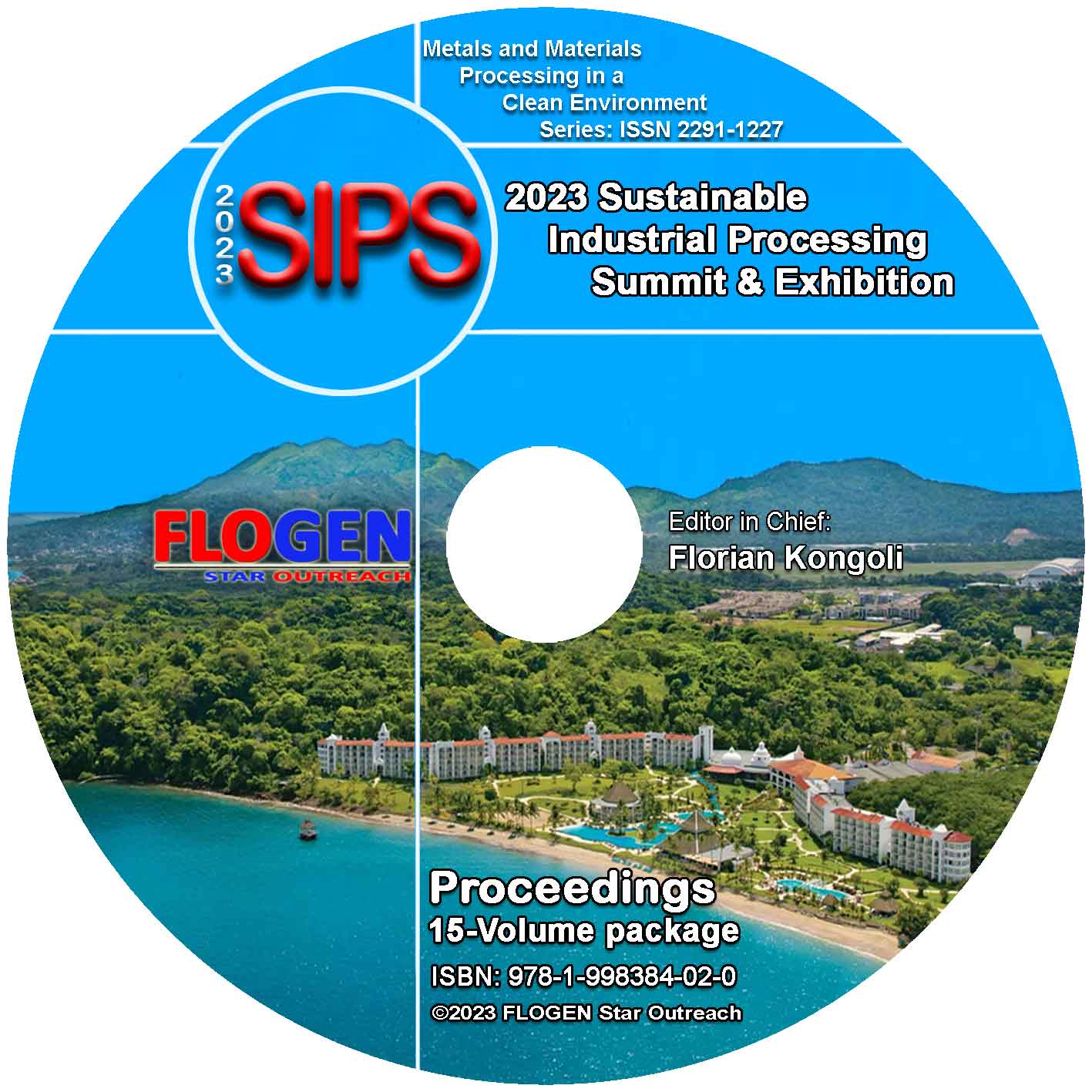2023-Sustainable Industrial Processing Summit
SIPS2023 Volume 14. Intl. Symp on Electrochemistry, Molten Salts, Corrosion and Recycling
| Editors: | F. Kongoli, R. Fehrmann, V. Papangelakis, I. Paspaliaris, G. Saevarsdottir, G. Kipouros, R. Singh, F. Wang, D. Macdonald, R. Gupta, M. Barinova, F. Ahmed, H. Ozgunay, K. Tang, N.N. Thanh, C. Gaidau, K. Kolomaznik |
| Publisher: | Flogen Star OUTREACH |
| Publication date: | 21 December 2023 |
| Pages: | 114 pages |
| ISBN: | 978-1-989820-98-8 (CD) |
| ISSN: | 2291-1227 (Metals and Materials Processing in a Clean Environment Series) |

CD shopping page
ZERO WASTE PROCESSING OF ZINC CONTAINING SLAGS FROM LEAD INDUSTRY
Juergen Antrekowitsch1;1CHRISTIAN DOPPLER LABORATORY, Leoben, Austria;
Type of Paper: Plenary
Id Paper: 368
Topic: 7
Abstract:
Slags from primary lead industry are well known as potential resource for zinc which is accumulated in the slag during lead smelting. At some of the smelters a subsequent fuming process is installed to recover zinc which is usually present in a range between 4 to 16 %.
However, at many lead producers this is not the case and the slag is landfilled. Out of this, over the years, a huge number of dumps was generated worldwide. The Chair of Nonferrous Metallurgy at Montanuniverstaet Leoben has developed possible strategies to treat such slags in a way that zinc and lead can be recovered and the remaining mineral phase containing first of all typical slag components can also be utilized. These concepts allow a full remediation of a dumpsite or a zero waste treatment of slag from ongoing smelter operations.
The present paper describes the reduction process which is performed under CO2-neutral conditions, utilizing either hydrogen or charcoal. Furthermore, possibilities for slag modification and optimization are explained, allowing a utilization of the slag in building and construction industry. Results from various test campaigns in lab- and technical scale are discussed.
Finally, an overview of the worldwide potential and some process scenarios including economic considerations are presented.
Keywords:
Lead; Recycling; Slags; ZincReferences:
[1] Auer M., C. Wölfler and J. Antrekowitsch: Inflluence of different carbon content on reduction of zinc oxide via metal bath. Applied Sciences (2022), 12, 2, 4180[2] Hanke G., J. Antrekowitsch, F. Castro and H. Krug: Maximizing the efficiency of by-product treatment by multi-metal recovery and slag valorization. Rewas 2022 – Developing tomorrow‘s technical cycles (2022), Anaheim, Kalifornien, USA, 201–211
[3] Leuchtenmueller M., C. Legerer, U. Brandner U. and J. Antrekowitsch: Carbothermic Reduction of Zinc Containing Industrial Wastes: A Kinetic Model, Metallurgical and Materials Transactions B: Process Metallurgy and Materials Processing Science (2021), 548-557